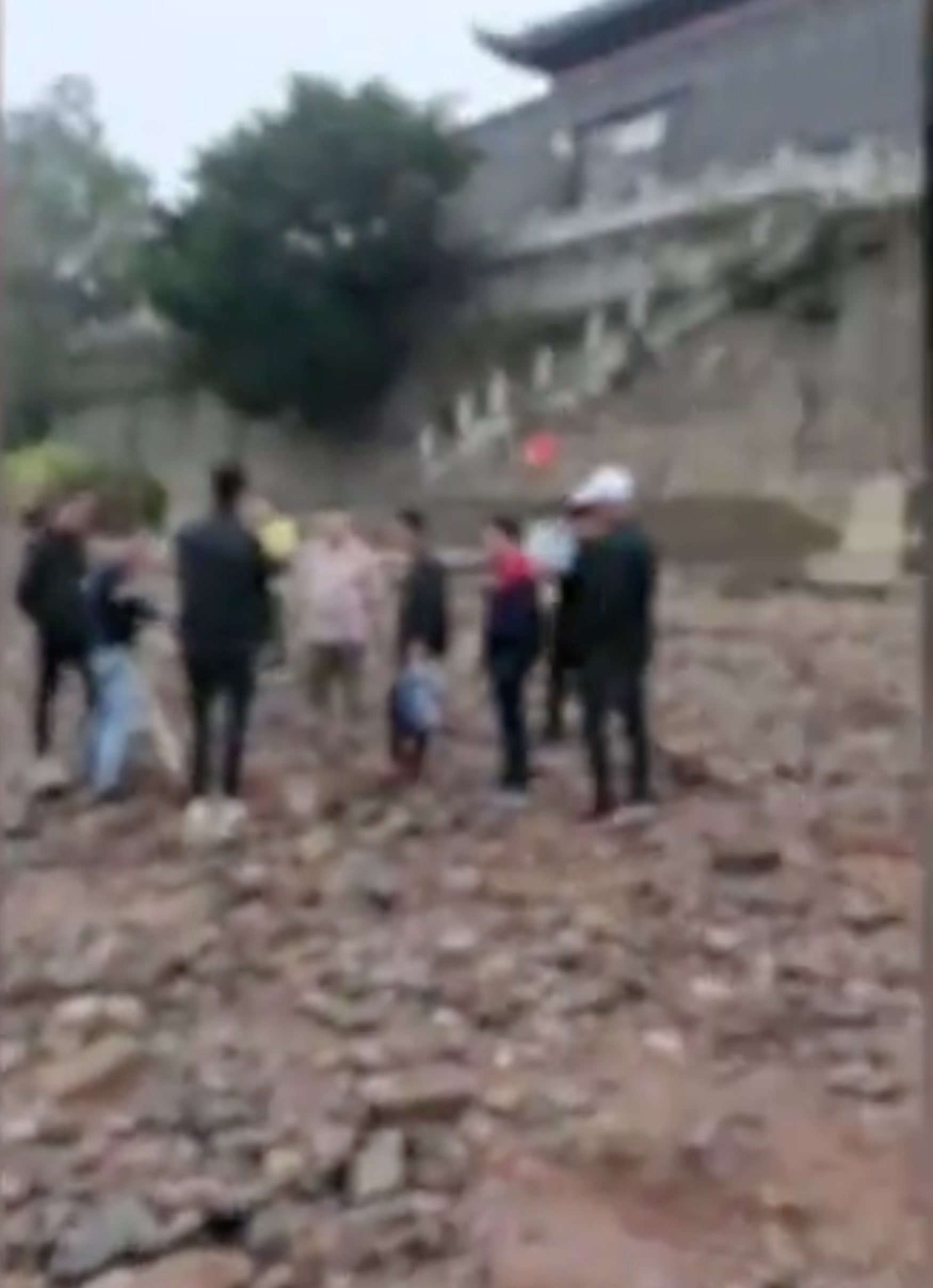
Amateur treasure hunters descend on Chinese city after summer record heatwave dries up riverbeds exposing precious relics
- Treasure hunters swarm to dried-up riverbeds in hope of unearthing a ‘good harvest’
- Ganzhou city authorities declare mass amateur digs illegal and call on people to hand over anything they have found
Amateur treasure hunters armed with metal detectors and spades are flocking to stretches of riverbed along the Zhang and Gong rivers in Ganzhou city, Jiangxi province.
A series of videos circulating widely on mainland social media show scores of people scouring the dried-up beds of both rivers in search of antiques from centuries ago.
In one clip shared by a local resident on Douyin on Saturday, a large number of people are seen searching the exposed riverbeds carefully using a variety of tools, with some finding ancient coins, gold ingots and pieces of ceramics.

“This is from the Song dynasty. It says Da Song here,” exclaims a man holding a shoe-shaped ingot to onlookers.
“The riverbank is bustling. There is a sea of people. I hope everybody has a good harvest,” said another post featuring a treasure-seeking scene, where elderly people and children could also be seen.
The army of fortune-seekers has grown so big that local authorities have issued a warning reminding them such activities are illegal.
‘An arm for a life’: woman in China saves boy from truck and loses limb
“Due to the heatwave and dry weather since this summer, rivers and lakes in our city have witnessed a significantly low water level. There have been ancient relics exposed in the Zhang River and Gong River,” authorities said in a statement released last week.
“Any form of research and excavation of the underwater relics by any individual is illegal,” the statement went on, before urging residents who had done so to hand over anything they had found to the government.
Last month, an inscribed stone tablet believed to date back to the Qing dynasty (1636-1911) was discovered at a dock on the city’s Zhang River.

Inscribed with Chinese characters which mean “eastern point of the South Ganzhou avenue”, an ancient route that is seldom mentioned in history books, the tablet is of great importance to historical studies of the city, a former deputy curator of the Ganzhou Municipal Museum told local newspaper, Gannan Daily.
Ganzhou thrived as early as the Northern Song dynasty (960-1127) and is regarded as a city of significant cultural and historical interest in southeastern China. An ancient city wall in its central area is the largest of its kind south of the Yangtze River and one of only a few nationwide.

